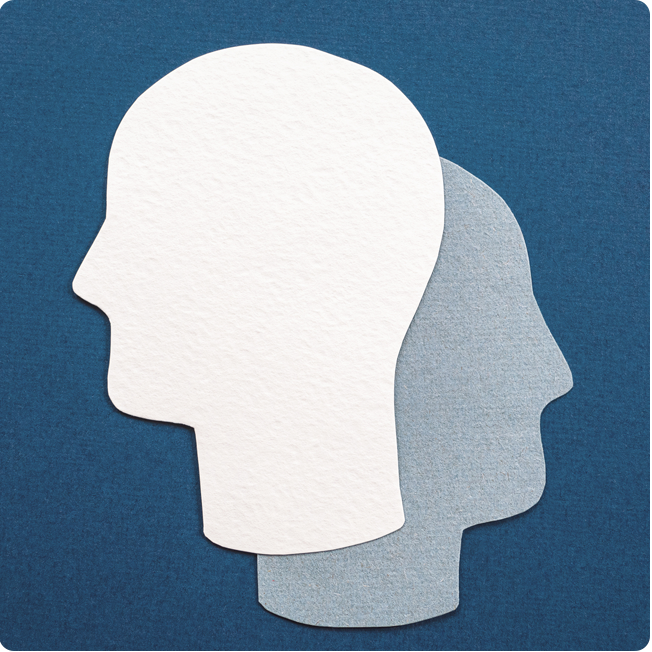Our Alcohol Treatment and Drug Abuse Treatment in California Accepts Most Major insurance Providers
















Our Dual Diagnosis Treatment Programs
A Structured Path Toward Healing
Integrated care is vital for successful recovery from dual diagnosis. At Stairway Resource Center, our dedicated mental health professionals collaborate closely with addiction specialists to create a comprehensive treatment plan tailored to each patient’s unique needs. This unified approach ensures that no aspect of an individual’s health is overlooked.
Mental health plays a crucial role in the recovery process. An untreated mental health disorder significantly increases the risk for relapse, making it essential to address these conditions alongside substance use. Our programs emphasize understanding this relationship, empowering patients to develop healthier coping mechanisms and emotional resilience.
Evidence-Based and Spiritual Care Combined
Combining research-based therapy, such as cognitive-behavioral therapy (CBT) or dialectical behavior therapy (DBT), and holistic care methods, such as art therapy, can further enhance the healing process. We support and encourage body, mind, and spirit. Our team also develops dietary plans, spiritual support, exercise routines, breath work, and more. Finding a balance between both forms of care can better support recovery.
A Community Built on Connection
A supportive community is vital for maintaining sobriety and encouraging personal growth. At Stairway Resource Center, our mission is to provide structured, spiritual, and evidence-based recovery programs that foster community and connection, while treating severe mental health and addiction. We believe that the connections you make during treatment can be just as important as the therapies you receive. Through peer support and alumni involvement, individuals can build lasting connections that reinforce their commitment to sobriety. These relationships offer encouragement, shared experiences, and accountability.
Get Your Questions Answered Now Through Admissions
Who We Help
Supporting All Walks of Life
At Stairway Resource Center, our compassionate team of individuals supports mild to severe psychiatric disorders. We are 100% eclectic in treating homelessness, LGBTQ+, lawyers, doctors, and all demographics. From detox to relapse prevention, we provide care for every stage to help you achieve an independent way of life.
Common Co-Occurring Mental Health Disorders We Treat
At Stairway Resource Center, we recognize that co-occurring conditions vary widely. Some of the most common mental health disorders we treat alongside addiction include:
- Anxiety disorders: Persistent worry can trigger you to seek relief through substances, perpetuating a cycle of addiction.
- Major depressive disorder: Feelings of hopelessness can drive you to self-medicate if you tend to seek an escape from your emotional pain.
- Bipolar disorder: Manic and depressive episodes may result in impulsive behaviors, including substance abuse.
- Schizophrenia: You may turn to drugs or alcohol to manage symptoms or cope with reality, complicating your mental health treatment.

What to Expect During Dual Diagnosis Treatment in Los Angeles
A Typical Day in Treatment
Embarking on the journey to recovery from a dual diagnosis can feel daunting, but understanding what to expect can help alleviate anxiety and foster a sense of empowerment. At Stairway Resource Center, we provide a high level of care and strive to guide our patients through each stage of the recovery process. We want you to feel supported and informed every step of the way, from inpatient or residential treatment to our intensive outpatient program and aftercare.
Individualized Treatment Plans for Each Client
At Stairway Resource Center, we believe in the power of personalized treatment plans. Our experienced clinicians conduct thorough evaluations to develop individualized strategies that address both addiction and mental or physical health challenges. We ensure that every treatment plan is tailored to meet your unique needs.
How Our Integrated Treatment for Co-Occurring Disorders Stands Out
Recognizing the intricate relationship between mental health and addiction is essential for understanding dual diagnosis. Recovery from both substance use disorder (SUD) and mental health conditions necessitates a comprehensive strategy that addresses the whole person. At Stairway Resource Center, we prioritize a holistic approach that encompasses the physical, emotional, and psychological aspects of health. By integrating evidence-based practices with compassionate support, we aim to enhance your recovery journey.
Evidence-Based Modalities and Approaches
At Stairway Resource Center, we believe in the power of personalized treatment plans. Our experienced clinicians conduct thorough evaluations to develop individualized strategies that address both addiction and mental illness. This may include approaches such as eye movement desensitization and reprocessing (EMDR), neurofeedback, brainspotting, and transcranial magnetic stimulation (TMS).
Family and Community Involvement
Addiction and mental health struggles can strain relationships with family and friends. Therefore, family involvement is crucial in the recovery process. Our family therapy sessions encourage open communication and healing, fostering a supportive environment for all involved. We want you to heal as a family.
Holistic and Wellness Practices
Holistic care supports recovery by strengthening the connection between mind, body, and spirit. Alongside clinical and 12-step work, we integrate practices such as mindfulness, breath work, movement, nutrition planning, and spiritual reflection to help individuals build balance, resilience, and long-term stability.

When to Seek Help for Dual Diagnosis
Recognizing the Signs
Learning to recognize the signs and symptoms of co-occurring disorders is essential for seeking timely help. Common indicators may include:
- Changes in sleep and appetite: Disruptions in these areas can signal distress
- Increased substance use: Escalating use of drugs or alcohol as a coping mechanism
- Mood swings and emotional instability: Fluctuations in mood can signal underlying mental health issues
- Anxiety and panic attacks: Intense feelings of anxiety may drive self-medication
- Withdrawal from social activities: Isolation can exacerbate both addiction and mental health struggles
- Difficulty concentrating: Trouble focusing can affect both personal and professional life
The Risks of Untreated Dual Diagnosis
Neglecting to address mental health issues alongside substance use can lead to serious consequences, including:
- Increased risk of overdose: Untreated mental health disorders can drive higher substance use and increase the risk of overdose.
- Deterioration of personal relationships: Addiction and mental health struggles can strain relationships with family and friends.
- Job loss and financial instability: The impact of co-occurring disorders may affect job performance and financial security.
- Legal issues: Substance use can lead to risky behaviors, resulting in legal troubles.
Given these significant risks, it is essential to pursue a tailored treatment plan that addresses both mental health and addiction.
Why Choose Stairway Resource Center for Dual Diagnosis Treatment in Los Angeles?
True Dual Diagnosis Expertise
Our therapeutic services go beyond the conventional treatments of addiction recovery. We specialize in treating co-occurring mental health disorders, recognizing that addiction is often a symptom of deeper emotional and psychological struggles. Whether you’re seeking help for yourself or a loved one, our experienced team of therapists, counselors, and medical professionals is here to guide you every step of the way — helping you build a healthier, more fulfilling life free from addiction.
An overlap between substance use disorder and mental health issues, such as anxiety, depression, bipolar disorder, and schizophrenia, can create a vicious cycle. Symptoms of one condition often exacerbate the other, leading to increased substance use or worsening mental health. Our dual diagnosis treatment aims to break this cycle, offering integrated care that promotes sustained recovery and emotional well-being.
Proven Recovery Community in Southern California
Opting for a dual diagnosis treatment center like Stairway Resource Center means choosing a compassionate and evidence-based approach to recovery. Our facility provides a safe, supportive environment where individuals from all backgrounds can seek healing without fear of stigma. We prioritize each patient’s dignity and personal journey, ensuring tailored care that resonates with your unique experiences.
Mental Health and Addiction Treatment Program Features
Sober Living and Structured Support
The Stairway Resource Center team of experts is here to help you achieve your recovery goals and support the best opportunities for a successful outcome and a fulfilling life. We understand that not everyone has a safe environment to return to after completing our addiction treatment program. For that reason, we’ll prepare you by ensuring you have proper aftercare services such as outpatient treatment options and safe, sober housing to thrive in recovery.
Career, Education, and Legal Support
Stairway Resource Center offers the tools needed to advance in your career or education journey. Our team can help with resumes, schooling, job placement, certifications, and interview preparation. We also help those in need of legal support, such as those on probation or parole. Our program is certified for court-ordered parenting, anger management, and domestic violence classes.




